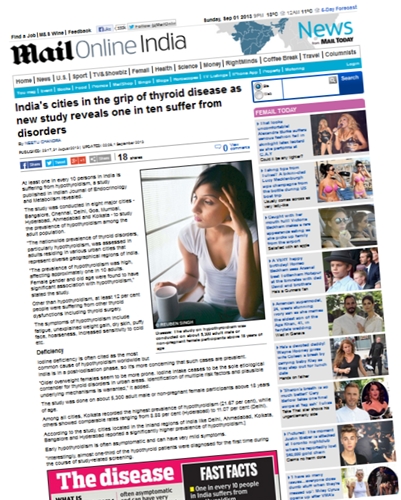The handling of thyroid in the UK is often woefully inadequate. So we lament the NHS and the private sector. Every so often, though, it might be interesting to read about elsewhere in the world.
India's cities in the grip of thyroid disease as new study reveals one in ten suffer from disorders
At least one in every 10 persons in India is suffering from hypothyroidism, a study published in Indian Journal of Endocrinology and Metabolism revealed.
The study was conducted in eight major cities - Bangalore, Chennai, Delhi, Goa, Mumbai, Hyderabad, Ahmedabad and Kolkata - to study the prevalence of hypothyroidism among the adult population.
"The nationwide prevalence of thyroid disorders, particularly hypothyroidism, was assessed in adults residing in various urban cities that represent diverse geographical regions of India.
"The prevalence of hypothyroidism was high, affecting approximately one in 10 adults. Female gender and old age were found to have significant association with hypothyroidism," stated the study.
Read more: dailymail.co.uk/indiahome/i...
Do follow up - though I am afraid I cannot find the original paper.
It does very much raise further the questions over why this wave of thyroid disorder seems to be everywhere.
Rod


